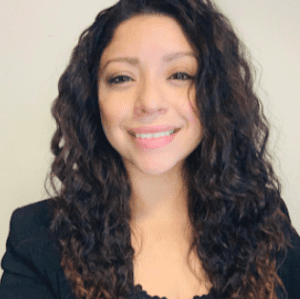
Rural Colorado offers many perks to its residents, but the education system is not one of them—especially for students of color.
I first began to notice student disengagement while working as a paraprofessional for an alternative high school in Otero County’s City of La Junta. Many students felt the work was irrelevant or insulted their intelligence to some degree, and, for most, college was beyond their imagination. This led me to question the reasons behind the disconnect between students and their academic endeavors.
In the rural area where I live, the four-day school weeks are a direct result of the lack of funding. Adding to that is the fact that there are no youth centers or activities outside of school to supplement the current academia, keeping students engaged and interested in higher learning. Furthermore, there is no celebration of cultural differences, no recognition of Martin Luther King Jr. Day, and no representation of Black or Latinx populations in the textbooks. In the nearest town of Swink, for example, systemic racism was conveyed in an 8th grader’s essay, with him going as far as saying, “[he] would classify [his] race as one of [his] main problems” when speaking about his experience in the school district, as “the school and town itself choose to completely segregate itself from Black culture.” Out of six school districts, Swink schools are the only ones that can attest to providing a superior education. Many white-collar professionals go out of their way, driving across towns to take their children to this school, leaving the rest of Otero County students to attend schools that lack resources to ensure their success. Needless to say, the journey to higher education for many in rural Southeast Colorado is hindered by several factors.
For one, Otero County has a population of 18,690 souls, according to the 2020 Census, and almost a third of the population is a minority group. Although Colorado’s poverty rate sits at 9.4%, Otero bears the brunt of more than twice that at 22%. The median household income in Colorado is $89,302; for Otero, it’s $45,826**. This brings about issues of food insecurity, unemployment (25.5% vs. the state average of 14%), and, of course, housing. So I ask, how can students focus on their studies when this is their reality? In my experience, mentioning college to my students felt somewhat insensitive when they were just trying to survive.
The average math proficiency score for Otero is 20%, with a reading proficiency of 36%, both below the state average. Additionally, Otero schools have an average ranking of 3/10, which is in the bottom 50% of Colorado public schools. For those who continue to higher education in the local Otero College, only 41.4% graduate. This paints a vivid picture of the uphill battle our students face in achieving higher education, in addition to the economic disadvantages already in place. According to Indexmundi, six out of the ten poorest counties in Colorado fall in our southeast region.
The bottom line is—we need help. Funding resources, food banks, academic assistance, and programs for our youth in schools would greatly benefit our population by preparing the next generations. It would also serve our communities to have a culturally diverse education system where students of all races can be represented in a rich curriculum, as well as educational programs or workshops to supplement their academic studies. I am afraid that without any effort or concerns for the southeast region, the impacts could only lead to increasing statistics at an alarming rate. All we are asking for is a little tender love and care.
Maryori “MJ” Guzman is an immigrant from Honduras who grew up in Houston, TX and has been living in Colorado for the past 5 years. Upon graduating from a local community college in Baytown, TX, in 2017, she has dedicated her life to working in the nonprofit sector and serving her communities through organizing and advocacy efforts, primarily focusing on underserved populations. MJ currently attends the University of Colorado-Denver, pursuing a degree in Communication and Political Science. Being a part of the Young Advocates Program allows her to learn about ways that can raise awareness on a political level, changing the structures and systems for good.
